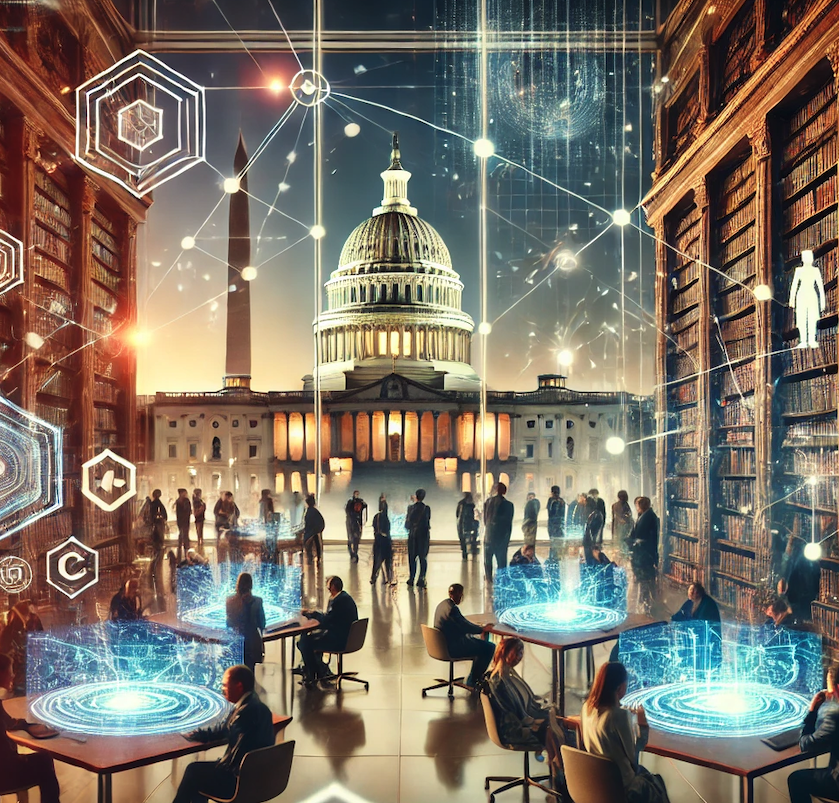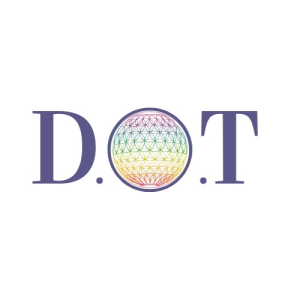Development Over Time Admin
Blog entry by Development Over Time Admin

Author: Clarissa Terracciano
Date: November 23, 2024
Topic: The Role of Academia and Think Tanks in the Deploying American Blockchains Act of 2023
The Deploying American Blockchains Act of 2023: A Call to Action for Academia and Think Tanks
The Deploying American Blockchains Act of 2023 (H.R. 6572) represents a pivotal moment for blockchain technology in the United States. This legislation charges the Department of Commerce with spearheading blockchain initiatives while explicitly calling for the expertise and insights of academia and think tanks. These institutions are uniquely positioned to ensure that blockchain deployment is inclusive, equitable, and transformative for all communities.
Why Academia and Think Tanks Are Central to H.R. 6572
H.R. 6572 outlines several roles for academia and think tanks in shaping blockchain's future:
-
Participation in Advisory Committees:
Academia and think tanks are identified as critical contributors to the Act’s advisory committees. These groups will guide blockchain deployment policies, leveraging the expertise of diverse scholars and researchers. -
Development of Best Practices:
These institutions are charged with helping to create best practices for blockchain adoption, ensuring that technical, ethical, and societal considerations—such as interoperability, cybersecurity, and accessibility—are accounted for. -
Advancing Equity-Focused Research:
By quantifying blockchain’s potential economic and social impacts, academia and think tanks can identify opportunities to bridge gaps in access and equity while addressing risks of systemic exclusion.
The Role of Academia: Education and Research
Academic institutions are vital to fostering a deeper understanding of blockchain’s potential and challenges:
-
Integrating Blockchain in Education:
Universities should weave blockchain topics into interdisciplinary curricula, empowering students to explore its applications in education, business, healthcare, and technology. -
Leading Research on Social Impact:
Academic institutions must examine blockchain’s implications for society, particularly in credentialing, digital identity, and financial inclusion. A focus on community-driven research can highlight real-world challenges and solutions. -
Promoting Accessibility and Equity:
By spearheading initiatives such as blockchain-based digital credentials for underserved populations, universities can demonstrate blockchain’s potential to advance equity and inclusion.
The Role of Think Tanks: Policy Development and Advocacy
Think tanks have a unique ability to translate research into policy and strategy:
-
Shaping Inclusive Policies:
Think tanks should advocate for equitable blockchain policies that center on access and representation. This includes ensuring that advisory committees include voices from historically underrepresented and underserved communities. -
Promoting Awareness Across Sectors:
Think tanks can connect policymakers, industries, and academic institutions to promote a shared understanding of blockchain’s potential. -
Tracking U.S. Competitiveness:
Assessing global blockchain trends can help the U.S. lead with innovation while adhering to ethical principles. Think tanks play a critical role in balancing these goals.
Centering Equity and Inclusion
The Deploying American Blockchains Act of 2023 provides an opportunity to address long-standing disparities—but only if equity is prioritized in every step of the process. Key areas include:
-
Bridging the Digital Divide:
Academic institutions and think tanks must work to ensure that communities without reliable digital access are not left behind. This includes advocating for investments in digital infrastructure and education. -
Representation in Decision-Making:
It is essential to include diverse voices, particularly from historically excluded or underserved communities, in blockchain governance and policy-making roles. -
Ensuring Broad Access to Benefits:
Efforts must focus on delivering the economic and social benefits of blockchain—such as improved access to financial systems, healthcare, and education—to all communities equitably.
Conclusion: A Defining Opportunity for Thought Leaders
H.R. 6572 is more than a legislative milestone; it’s a call to action for academia and think tanks to ensure blockchain’s potential is realized inclusively and equitably. These institutions have the expertise to research, educate, and advocate for policies that amplify blockchain’s benefits while addressing its risks.
Call to Action
- Academics: Build programs that integrate blockchain into a wide range of disciplines, emphasizing ethical, practical, and inclusive applications. Engage in research that highlights blockchain’s potential to address societal challenges.
- Think Tanks: Produce actionable, equity-centered policy recommendations. Advocate for inclusive advisory committees and push for investments in digital equity initiatives.
- All Stakeholders: Support funding and infrastructure projects that prioritize underserved communities. Collaborate to ensure diverse representation in blockchain policy-making.
This is the moment for academia and think tanks to shape blockchain as a tool for innovation and equity. Together, they can ensure H.R. 6572 fulfills its promise to uplift every community.
Tags: Blockchain, Academia, Think Tanks, Policy, Inclusion
About the Author
Clarissa Terracciano is an experienced educator, educational consultant, and researcher specializing in blockchain technology and its transformative impact on education. Clarissa holds a BA in Psychology from CUNY Hunter College, an MA in Inclusive and Special Education from Teachers College, Columbia University, and is currently completing her PhD in Educational Leadership and Policy Studies at the University of Denver. She is committed to advancing equitable access to education through technology-driven approaches.
References
- U.S. Congress. Deploying American Blockchains Act of 2023. Congress.gov.
- H.R. 6572 Document: Full Text and Provisions.
